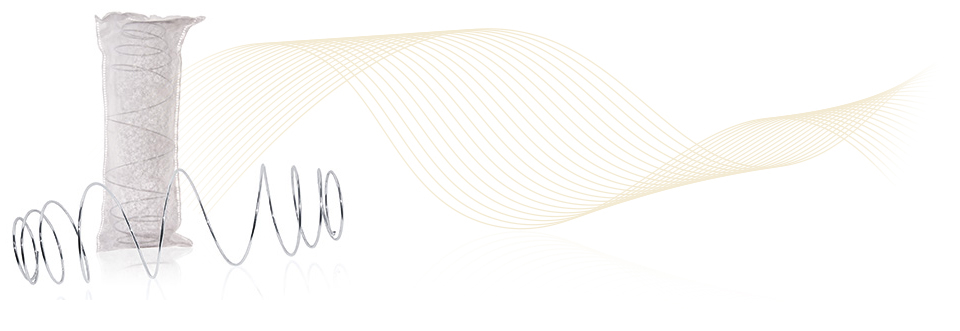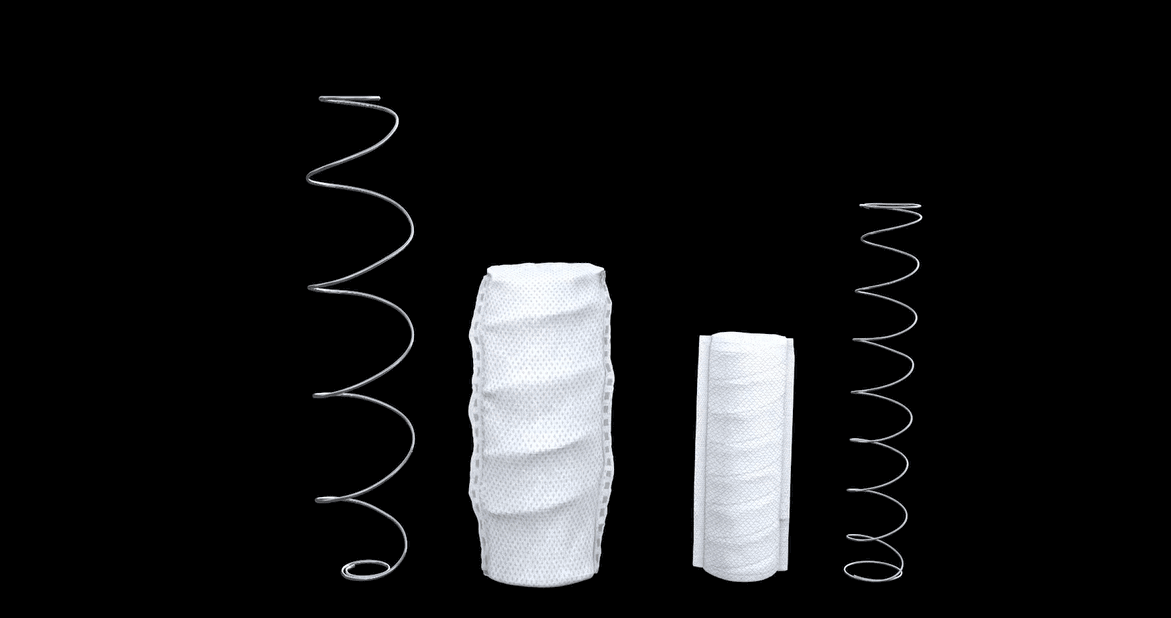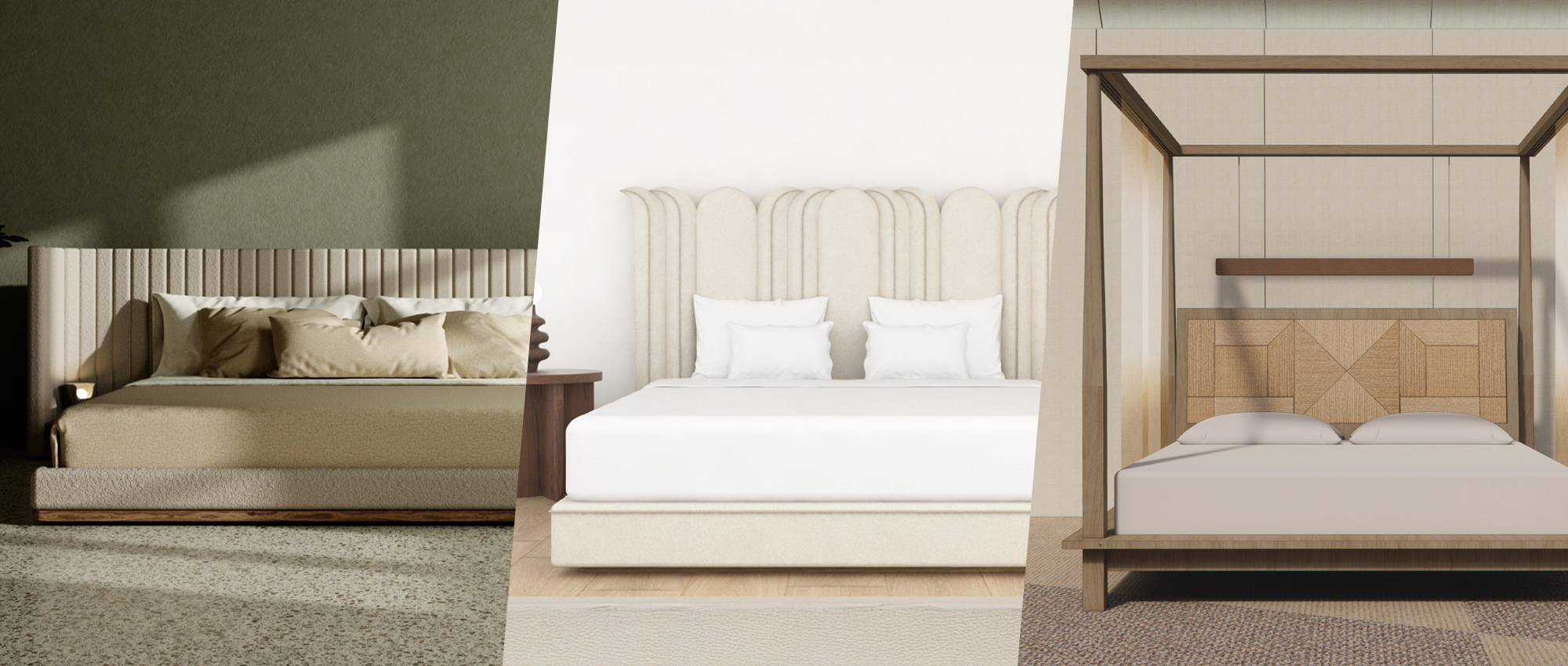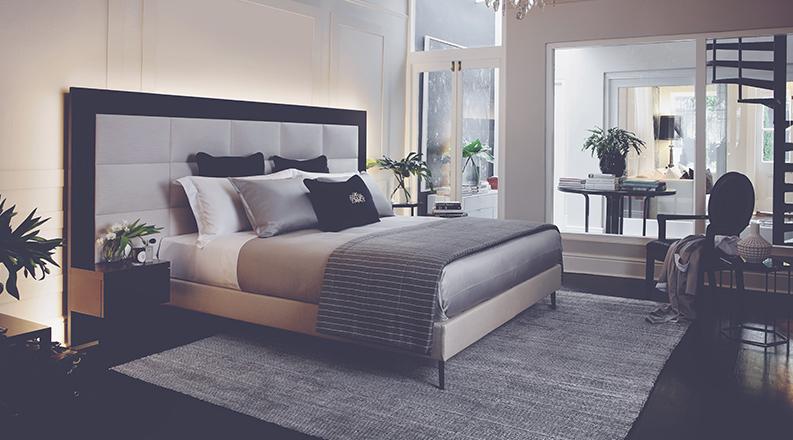12 October 2023 | NEWS
Comfort: Why are pocket springs more comfortable than foam?
The technology behind comfort
Choosing the right mattress isn’t easy. To help you, we’ve summarized the key points. Let sleep experts guide you.

Around 1900, Canadian engineer James Marshall invented the pocket spring system, also known as “individually wrapped coils” or “pocket springs.” This revolution in bedding technology enabled better body weight distribution and personalized support, significantly improving mattress comfort.
Rest assured! We’re far from the old spring mattresses of the past, where you could feel the wire through the fabric and end up sleeping in a sagging hollow. Thankfully, this technology has evolved. Today, it guarantees longevity and continuously optimized comfort. Say goodbye to uncomfortable pressure points and back pain.

Each spring is encased in a cotton barrel-shaped pouch, keeping it slightly compressed and ensuring it acts independently. This allows the springs to adapt to every movement during the night. The result: pressure absorption combined with independent support, offering a delightful feeling of weightlessness.
Spring firmness and elasticity depend on the wire thickness, coil diameter, number of spirals, and the coil density per square meter — all of which influence durability and performance.
Organized into comfort zones, pocket springs help relieve pressure points at protruding areas like the shoulders and hips, while supporting the skeleton to keep the spine aligned. This ensures optimal blood circulation and excellent ergonomic support throughout the night.
A quality sleep system must combine both welcoming softness — to avoid pressure pain — and firm support for the back, lumbar area, and neck. This promotes muscle relaxation and reduces micro-awakenings. Your sleep improves — so does your vitality.
Helping the body relax during sleep supports its natural regenerative powers. While not a cure-all, a high-quality mattress is undeniably the first step toward enhanced well-being.


Dynamic comfort and targeted support : pocket springs provide dynamic comfort and point-by-point support, enabling correct spinal alignment. During deep sleep, muscles can fully relax — an essential condition for restorative rest. Foam mattresses, in contrast, often provide static support.

Ventilation and thermoregulation : unlike foam, a pocket spring core promotes airflow and ventilation. When combined with natural padding, it helps dissipate heat and night sweat, fostering a healthy sleep environment and reducing disturbances.

Motion isolation :only the springs beneath the sleeper respond to movement — thanks to their individual action.

Durability : pocket springs last significantly longer than foam, which tends to harden over time. Elite mattresses have undergone TÜV durability tests as part of the European Ecolabel certification. The excellent result: after 10 years, they lose only 2% of their elasticity.

Not all springs are created equal. We exclusively use high-quality pocket springs. Thanks to our privileged partnership with our spring manufacturer, we benefit from the latest innovations. As a result, we can proudly say our pocket spring mattresses are the most technically advanced on the market.

Elite has developed this technology using two nested springs of different shapes and firmness levels that work progressively depending on the pressure applied. It allows the body to gently sink into the mattress, then pushes back for optimal support.

Our aim is to provide sleep solutions that evolve with generations. That’s why we’ve developed no fewer than 10 models based on various pocket spring technologies.
Just as importantly, we are committed to offering our clients expertise, craftsmanship, and close support through personalized advice in our Elite Gallery stores.


The 2025 Elite Design Awards winners are four women: Weronika Poręba from Poland (first prize), Clothilde Verdim from France (second prize) and British designer partners Rachel Forster and Ella Doran (third prize). Hailing from Mrocza, Paris and London respectively, the winners have come up with three outstanding bed designs, each offering their own take on this year’s theme of Arts and Crafts, a style that emerged in the nineteenth century seeking to honour craftsmanship rather than industrialisation.
